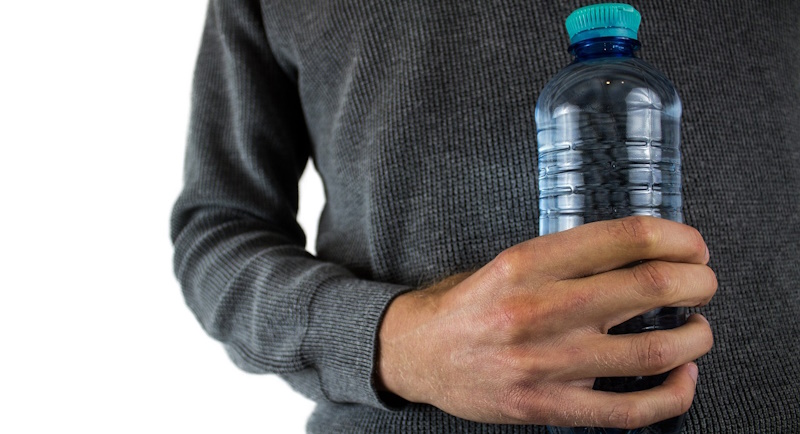How to achieve a healthy bladder
Maintaining good health requires continuous care for all organs, including the bladder, which often gets overlooked. The bladder plays a crucial role in our well-being; prioritizing its health alongside the heart and brain is essential.
What is the bladder and what does it do?
Your bladder is a part of the urinary system and is a spherical-shaped, hollow, and stretchy organ in the lower pelvic area. It is held in place by bands of tissue that connect it to the hip bone and other organs.
The bladder’s function is to store and expel urine through the urethra multiple times daily. As the kidneys produce urine, the bladder fills up like a balloon. Once your bladder fills up to around 200-350 mL of urine, nerves in the bladder send a signal to your brain notifying you of the need to use the bathroom. Once you eliminate urine, the bladder shrinks back down again, until it fills up again.
The bladder is vulnerable to various conditions such as urinary incontinence, cystitis, overactive bladder, urinary tract infections, bladder stones, and bladder cancer, all of which can result in painful or uncontrolled urinary release.
How do you know if you have a healthy bladder?
Signs of a healthy bladder include the following:
- You should be urinating about 950 – 1,900 mL (about two quarts) of urine each day
- Throughout the day, about every 3 to 4 hours, the bladder should empty 6-8 times a day
- Your bladder should be able to store and hold up to 400 to 600 mL (about 2 cups) of urine
- When your bladder is full, you should be noticing that fact, and it should allow you be able to hold your urine until you find a bathroom
- It should empty itself completely each time you urinate
Achieving good bladder health
Good bladder health is achievable as long as you take the time and effort to practice healthy bladder habits. If you already have specific bladder issues, work with your physician to tailor a strategy for addressing these concerns.
Below are proactive ways to gain control of the health of your bladder:
Ask your physician how much fluid you need each day
Everyone has various fluid needs, depending on their environment, physical activity, foods they eat, and specific health concerns. Based on your health history, along with other factors, can provide a good guideline of the amount of fluid to be consuming.
A good start is to balance drinking fluids each with the goal of maintaining good hydration. Your primary fluid source should be water; limit your intake of sugary beverages.
Maintain a healthy body weight
Research has found that a person’s body mass index can affect bladder health. The more a person weighs, the higher the risk of urinary incontinence. Working on weight loss with a registered dietitian is a good start to reaching a healthy body weight and better bladder health.
Stay physically active
Regular physical activity is necessary to help the bladder do its job. Exercise can help reduce bladder leakage while too much sitting each day is linked to lower urinary tract systems.
Limit alcohol and caffeine
The best fluid for bladder health is water. Caffeine in coffee, tea, and energy drinks can irritate the bladder leading to stronger urges to urinate. Alcohol, like caffeine, is a diuretic causing increased trips to the bathroom.
Don’t smoke
Besides causing cancer, smoking is another irritant to the bladder. Additionally, symptoms of urgent, frequent need to urinate caused by overactive bladder and interstitial cystitis are made worse by smoking. Smokers coughing spasms can lead to embarrassing urine leakage.
Always empty your bladder when urinating
Each and every time go urinate, be sure to completely empty your bladder. This helps to prevent urinary tract infections by preventing stagnant urine in the bladder with can lead to bacterial growth.
Avoid constipation
Holding the urge to defecate too often can lead to issues with your bladder health. That’s because the rectum is situated close to the bladder. Large stool amounts in the colon will push up against the bladder which can cause accidental urine leakage or create a feeling of the urge to urinate.
Throughout the day, use the bathroom when you feel the urge to defecate and not hold it in.
Dr. David Samadi is the Director of Men’s Health and Urologic Oncology at St. Francis Hospital in Long Island. He’s a renowned and highly successful board certified Urologic Oncologist Expert and Robotic Surgeon in New York City, regarded as one of the leading prostate surgeons in the U.S., with a vast expertise in prostate cancer treatment and Robotic-Assisted Laparoscopic Prostatectomy. Dr. Samadi is a medical contributor to NewsMax TV and is also the author of The Ultimate MANual, Dr. Samadi’s Guide to Men’s Health and Wellness, available online both on Amazon and Barnes & Noble. Visit Dr. Samadi’s websites at robotic oncology and prostate cancer 911.

